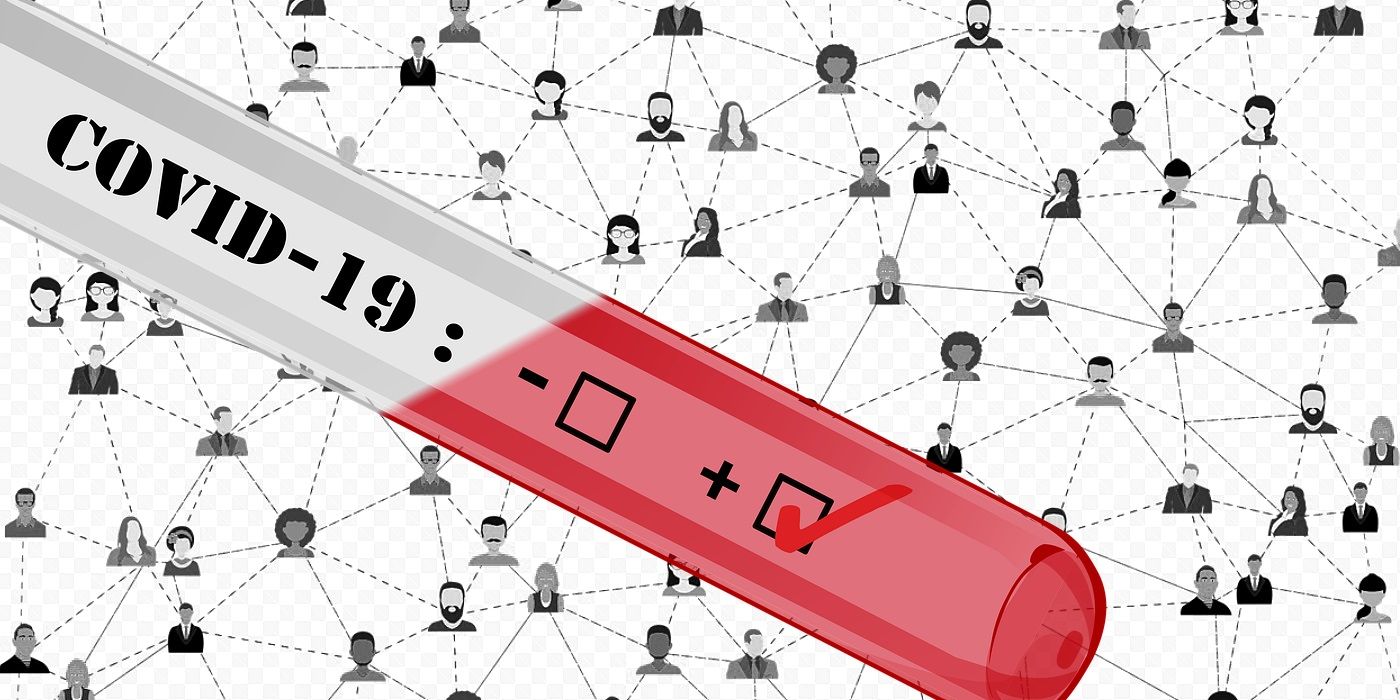There’s now a text scam doing the rounds which looks to capitalize on coronavirus contact tracing. Over the last few weeks, there’s been building momentum around the use of contact tracing, and it now looks like scammer interest in the phone-based solution is also growing.
Contact tracing is quickly becoming the go-to solution for many countries trying to slow the spread of COVID-19. While the approach has its critics citing privacy concerns, a number of governments and public health agencies are actively working on how they can implement a contract tracing solution using technology. Specifically, the use of smartphones as these can not only monitor transmissions, but also alert owners of potential contact with an infected person.
The Thomaston Police Department in Georgia has now started warning members of the public of a new text scam that’s circulating. Essentially, the scammers send a text message to a recipient pretending to be a contact tracing warning. The text advises of a recent encounter with a potentially infected person and advises the recipient to self-isolate or get tested. The message also comes with a web link for more information. However, this is a phishing scam as the link doesn’t provide more details, but acts as a “gateway for bad actors,” according to the Police department’s message.
How Contact Tracing Is Supposed To Help

Contact tracing is not new, but the use of smartphones and data to fuel the approach is. Some countries are already using smartphone contact tracing, while others, including the US and some European countries, are now in the process of figuring out how they will. The general idea is that whether using location data or Bluetooth, phones can do the monitoring automatically so that when an infected person is identified, the device can recall other devices (and their owners) that have crossed paths during the suspected contagious stage. All of this happens without having to rely on human memory for recall, which is what makes the approach so appealing.
The other side of contact tracing is that once a phone has recalled all the potential encounters, those devices (and their owners) can be notified so they can either self-isolate or get tested before they show symptoms or become contagious as well. Thereby, reducing the spread of the virus by intervening at an earlier stage of transmission. This is where this scam comes in as the message looks and reads just like it would if it was a real contact tracing notification.
With countries now preparing to roll out their contract tracing systems, a point to be aware of is that notifications might not come via text messages. Due to the privacy concerns surrounding nationwide tracking systems, Bluetooth is the likely candidate for many of these systems. This is thanks to Bluetooth’s ability to share data between phones without having to reveal identifiable information, such as a phone number. Instead, this will all be done through an app, and it is likely (though, not fully explained yet) that notifications will be triggered by the app as well. In other words, if you have not signed up to use a service like this, handed over your details to a public health organization, or downloaded an app, then it is unlikely any coronavirus-related notifications you get are going to be genuine.





